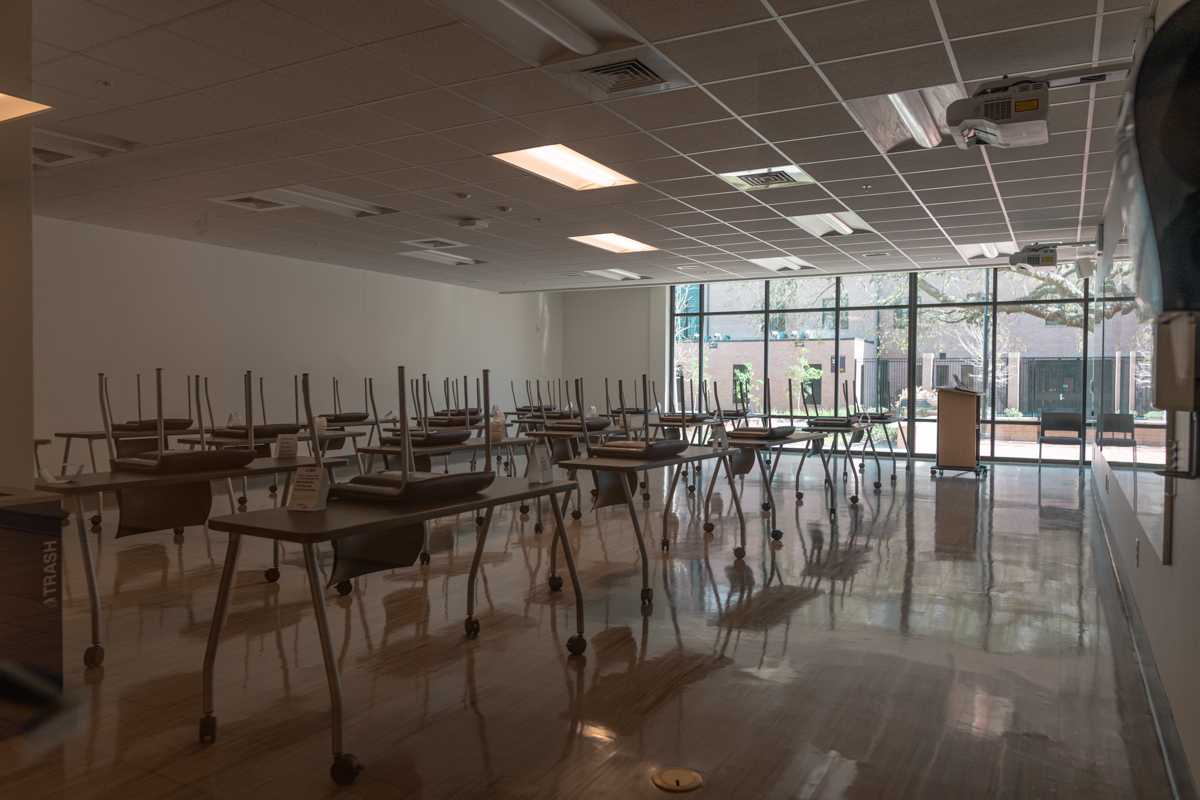Unbelievably, it has been just over a year since the onset of the various orders and precautions we now think about under the ominous umbrella of the “lockdown.’”
In one sense, the pre-pandemic world seems legendary, like a figment of the ancient past; in another, I find it impossible to believe that we have actually spent over an entire year with gloomy coronavirus clouds lingering over our heads.
I vividly remember the day we received the message about campus closure and our order to return home for the semester. It all happened so fast. In a matter of 48 hours, the entire campus had transformed from near normalcy to chaotic evacuation mode.
In amazement, I watched the rest of the semester evaporate before my very eyes. As a student, my primary source of day-to-day purpose and stability had been yanked from underneath me.
It is through these often strange and personally unprecedented experiences that I came to see this past year as an object of intense reflection and commemoration. The events of lockdown encouraged me to grapple with some simple, yet undoubtedly uncomfortable, insights into the inherent uncertainty of human life.
In early to mid-February of last year, just as murmurs of the soon-to-be pandemic had begun to bubble up in our news cycles and online communities, I wrote a column — one I would later come to regret — dismissing early panic about the virus as mere alarmism and media over-saturation.
To be fair, my position was relatively standard at the time. There had only been a small handful of reported cases of the virus in the country; most people, including myself, assumed that the powers that be — scientists, hospitals, the government, etc. — would simply “take care of it,” whatever that meant.
The thought of a year-long, society-bending struggle against coronavirus never even remotely entered my mind.
But that’s just my point. In retrospect, I realize that my reasoning for being so flippant with early pandemic panic can basically be boiled down to my naïve inability to fathom a world in which our trusted sociopolitical infrastructures could falter, allowing outside forces to come crashing through and obliterate the status quo.
Watching the entire world grind to a halt and collapse at the feet of natural disaster was a sobering reminder of how incredibly vulnerable we are, inescapably at the mercy of factors beyond our control.
It seems to me that our culture frequently suffers from an uncritical humanism and tends to presume an intrinsically upward trajectory to human history, believing that the continual accumulation of scientific and political progress will indefinitely distance modernity from the atrocities of history.
I have repeatedly found myself turning to the work of French existentialist author Albert Camus while trying to make sense of this past year and what its greater spiritual (so to speak) significance might be.
His 1947 novel “The Plague” directly takes on the social and philosophical implications of unmanageable contagion. In it, we encounter the small ocean town of Oran and its citizens. They are, like us, explicitly “modern” people who lack any sense of their susceptibility to full-scale cultural disruption.
Prior to the outbreak, they find themselves in a bubble of blind comfort and complacency, reluctant to see how anything could possibly pose a threat to this existence.
Needless to say, that bubble gets popped.
For Camus, plague is inevitable; disaster and suffering are non-negotiable aspects of the human condition.
And sure, someone could absolutely make the case that, if governments and social institutions had handled things differently, this whole thing could have been avoided.
Maybe. But that misses my point completely. We obviously can and should work to curtail catastrophe whenever possible. Who knows — we might very well be able to defend ourselves against another pandemic in the coming decades.
That said, this past year has been helpful in forcing us to pierce through the veil of modern comfort and see life in a renewed light.
While confidence in human accomplishment can certainly be a good thing, we should be careful to not forget our mortal contingency: that we are fragile and irreducibly interdependent.
Evan Leonhard is a 20-year-old English and philosophy sophomore from New Orleans.
Opinion: Looking back on what lockdown taught us
March 23, 2021
A classroom sits empty on Jan. 15, 2021 inside Cedar Hall.








